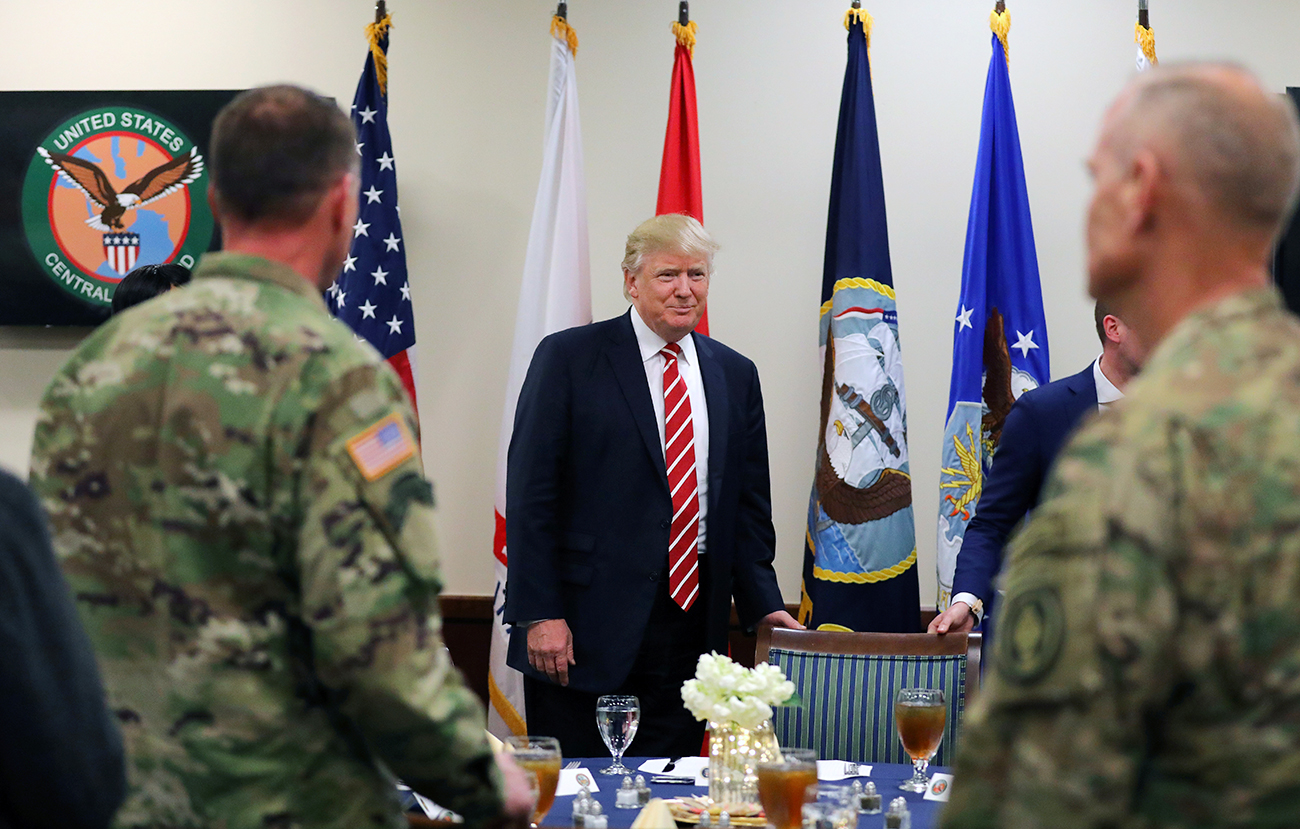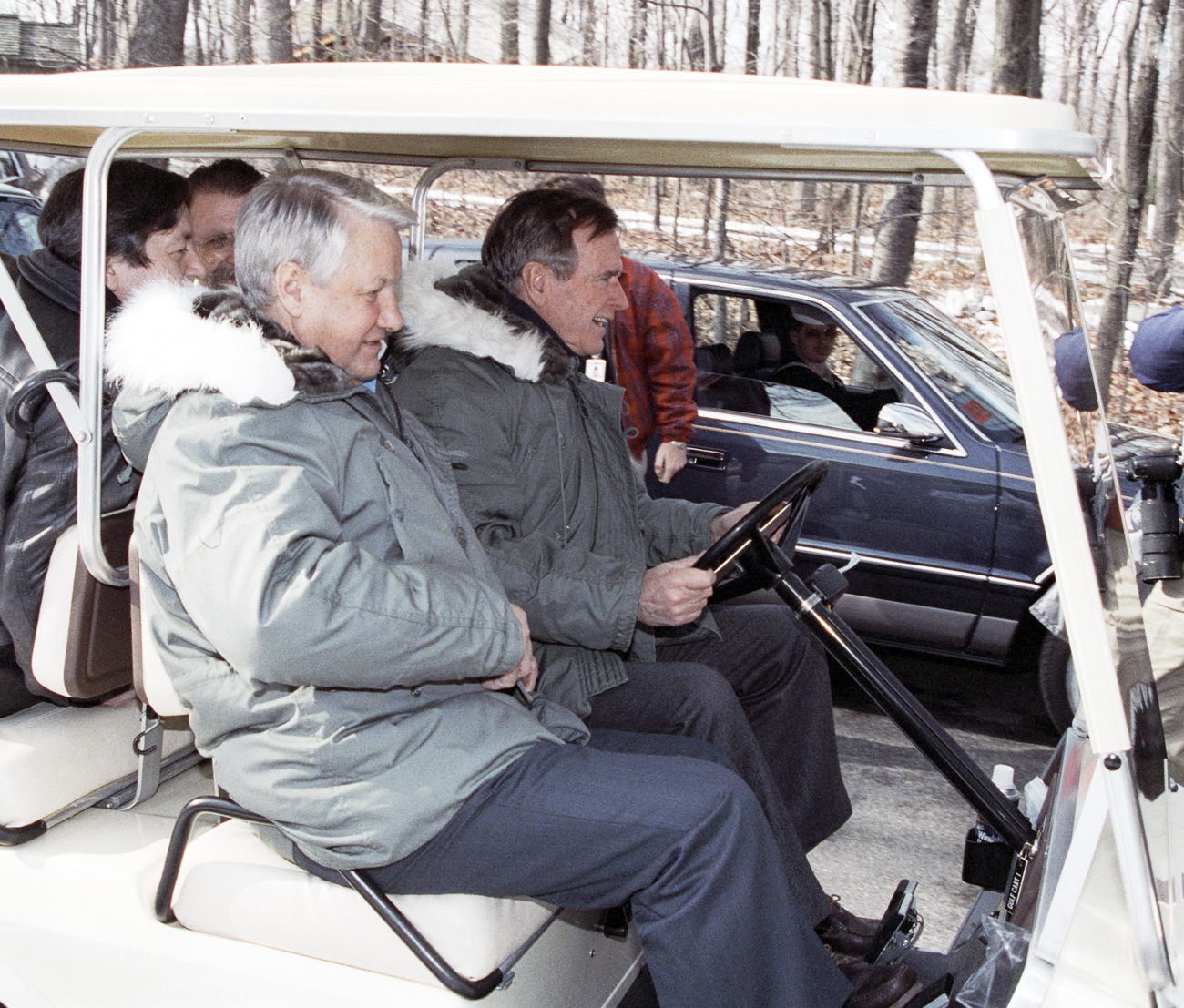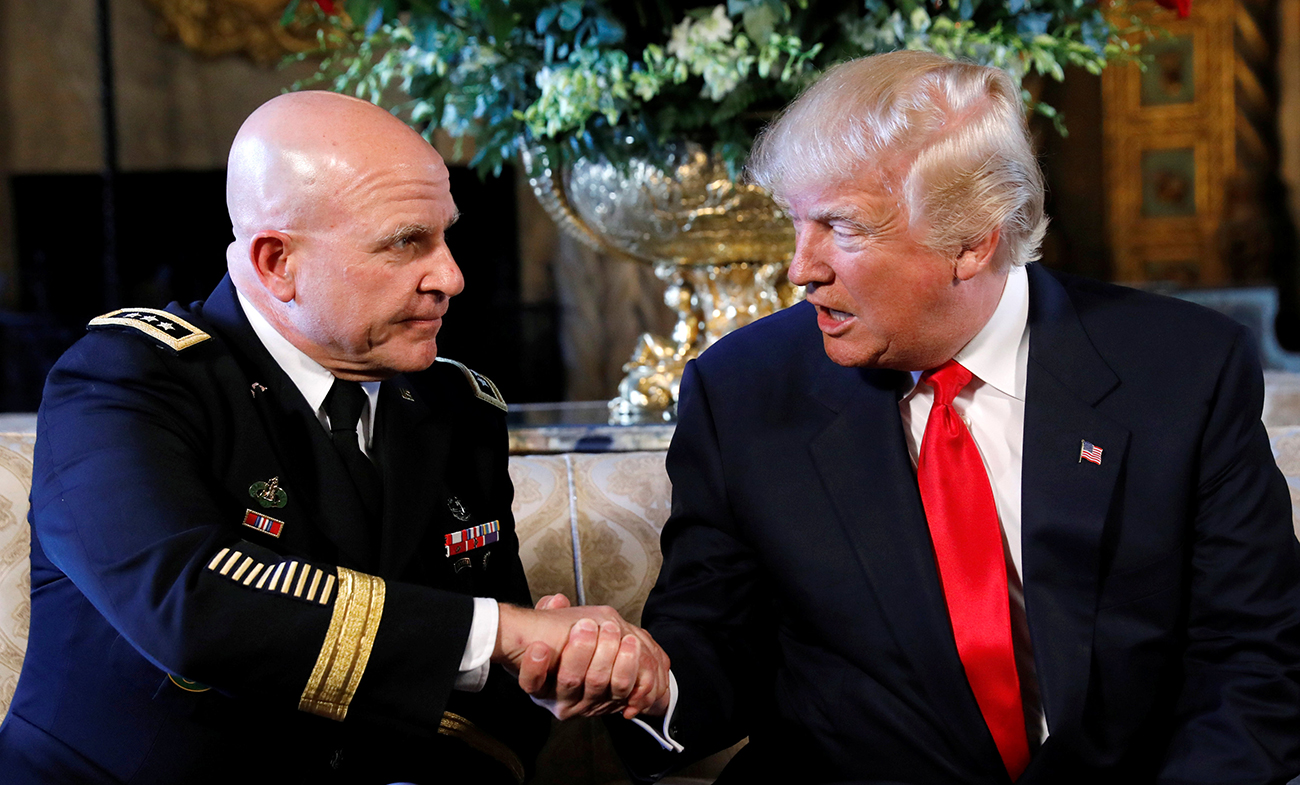U.S. General: Trump won’t take confrontational approach with Russia

"Trump will see to it if to bring Crimea and Ukraine as part of the discussion, but he will not be fixated on that." Photo: President Trump attends a lunch with members of the U.S. military.
ReutersTrump, Crimea and the meeting
RBTH: General, imagine that Crimea happened today. How would Trump have reacted?
Paul E. Vallely: I think he would have wanted to talk to Putin and say “Hey, what’s going on? What’s happened, there’s got to be a reason for this, would you let me know?” Obama could never do that. If you read Trump’s book, The Art of the Deal, you find out how he does it.
It’s difficult to guess what he would have done, but we know what his thinking is, and it’s very different from Obama’s. Now, if Russia takes some action somewhere, he is not going to overreact. And if it’s not in the interests of the U.S., if it’s not a threat to the U.S., he is going to think very hard about getting involved.
RBTH: What do you expect from the first meeting between Trump and Putin?
Paul E. Vallely: Putin is going to meet with Trump sooner rather than later. That’s very important. A long time has passed since Mikhail Gorbachev met Ronald Reagan and we are in a very different environment now that looks almost like a new Cold War. But this happens because the media and the Democratic Party blame Russia for everything, which is just ridiculous. There is absolutely no evidence that the Russians affected the U.S. elections by hacking or by any other means.
I think Trump and Putin will discuss issues related to energy, economics. They will talk about the situation in Syria, extremism and how to deal with it. Trump is likely to bring up North Korea as a subject of the discussion too. He will see to it if to bring Crimea and Ukraine as part of the discussion, but he will not be fixated on that. In general, I think Putin respects Trump. I know Trump respects Putin. I would say rather sooner than later we will be surprised about the way things happen.
Misunderstanding Russia
RBHT: There are many military representatives in Trump’s inner circle. Do they see Russia as a challenge, a threat, or a potential ally?
Paul E. Vallely: We have a couple of guys who do not understand the new Russia. We still have a contingent of old CIA types who regard Russia as a main threat. I have one person in mind. But I don’t want to name him only because of the transition period. If you quote me on that, he is going to say “Why did he say this about me, I’ve been here for only a week.”
RBTH: Is it true that, among the military members of Trump’s team, Secretary of Defense James Mattis has the most influence with the President?
Paul E. Vallely: Yes, Mattis has an upper hand in pushing his agenda with the White House. Mattis certainly has more power than the other military within the Trump team to shape policy.
RBTH: Does James Mattis see Russia as a threat?
Michael Maloof: Yes, Mattis still regards Russia as a threat, but at the same time he says we can work with Moscow. But it’s important that it was Trump who has brought these people in, knowing what their positions are. And he made it very clear that he wants their opinions, but the ultimate decision remains with him.
Paul E. Vallely: And Trump is very positive about Russia. He does not have any preconceptions that Russia is a threat.
RBTH: Some saw former National Security Advisor Michael Flynn’s resignation as the closure of an opportunity for Moscow. Was Flynn indeed the Kremlin’s window into the Trump administration?
Paul E. Vallely: Flynn indeed was a window into the Trump administration for Russia. And this was particularly important in light of the legacy Obama had left. Obama never knew how to develop a relationship with Russia. Flynn, on the other hand, has been very proactive in engaging Russia. But even though he had to resign, Trump will still reach out to Moscow.
Trump’s line in the sand
RBTH: Trump seems to be under significant pressure on issues related to Russia. Is it true he has been pressured by the Washington political establishment and the military to change his rhetoric on Russia?
Michael Maloof: To a point. Trump has been more forthcoming about expressing the desire to work with Russia than the old Cold Warriors had. And that’s a part of the changes that are happening in the U.S. now. The country is being mentality oriented into a new direction by the new president. And this is pretty hard when you have old CIA types who are still in their positions and the media, which has been very anti-Russian. But if Trump makes a decision to cooperate with Russia, they will stand up and salute.
Paul E. Vallely: Definitely, they will stand up and salute. An important thing is that the soldiers are very happy to have Trump as president. And this is what is really important. From that stand point we get a new spirit within the armed forces now.
RBTH: If the military has Trump’s ear, does it mean Trump is going to pursue a more assertive policy towards Russia if he fails to find common ground with Putin?
Paul E. Vallely: No, I don’t think Trump is going to take that approach. Trump and Putin will get along well, and they will make a deal. Trump is not going to take a military confrontational approach to Russia at all.
RBTH: In Syria, what does the U.S. military think about a prospect of cooperating with the Russian military?
Michael Maloof: There is already some level of cooperation. They have video conferences. There was one episode when the U.S. bombed Syrian troops. A serviceman left his post on the U.S. side, and that created the problem. That episode helped establish new procedures to be followed from then on. They are trying to make it work, but that’s the level of cooperation for now.
There is substantial internal resistance within the military against cooperating with the Russians in Syria. There is reluctance on part of the military to share the intelligence, because of the perceived notion that Russia remains the primary threat.
But the whole Syrian thing might change this mindset. From our personal meeting with Russia’s Deputy Foreign Minister Mikhail Bogdanov, we have an impression that Russia is willing to achieve it too. And this is one of the messages we are bringing back to the U.S.
RBTH: Obama was criticized for drawing a line in the sand on Syria and then not acting upon it. Would Trump be more decisive to act in a similar situation?
Paul E. Vallely: I don’t think Trump will draw any lines to begin with. For Trump, if there’s a threat to the U.S., then we are going to go and take it out. If, in the meantime, we have to work with the Russians to eliminate that threat, then we will. That’s the attitude. Trump is not that kind of person who wants to draw lines. He wants to identify a problem and work with everyone he can to solve it.
Paul E. Vallely is a retired U.S. Army Major General, Chairman of Stand Up America, Scott Vallely Soldiers Memorial Fund and NEMO ARMS Inc. He is senior military analyst for Fox News.
F. Michael Maloof is a contributing writer for national security affairs for WND and G2Bulletin, a former senior security policy analyst in the office of the secretary of defense, and the author of A Nation Forsaken.
Paul Vallely and Michael Maloof both came to Moscow for a series of events organized by the Valdai Discussion Club, including a private meeting with Russia’s deputy foreign minister Mikhail Bogdanov.
Read more: Hold on tight: Riding the Russian-U.S. rollercoaster>>>
If using any of Russia Beyond's content, partly or in full, always provide an active hyperlink to the original material.
Subscribe
to our newsletter!
Get the week's best stories straight to your inbox

